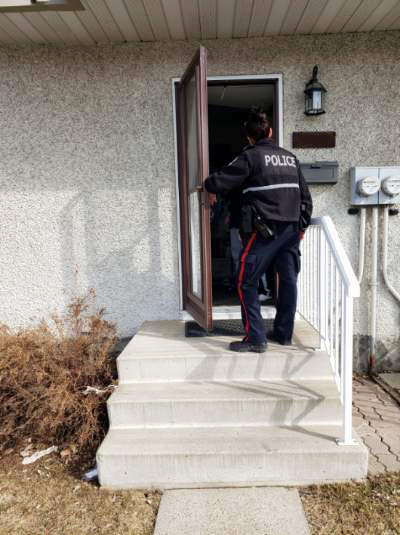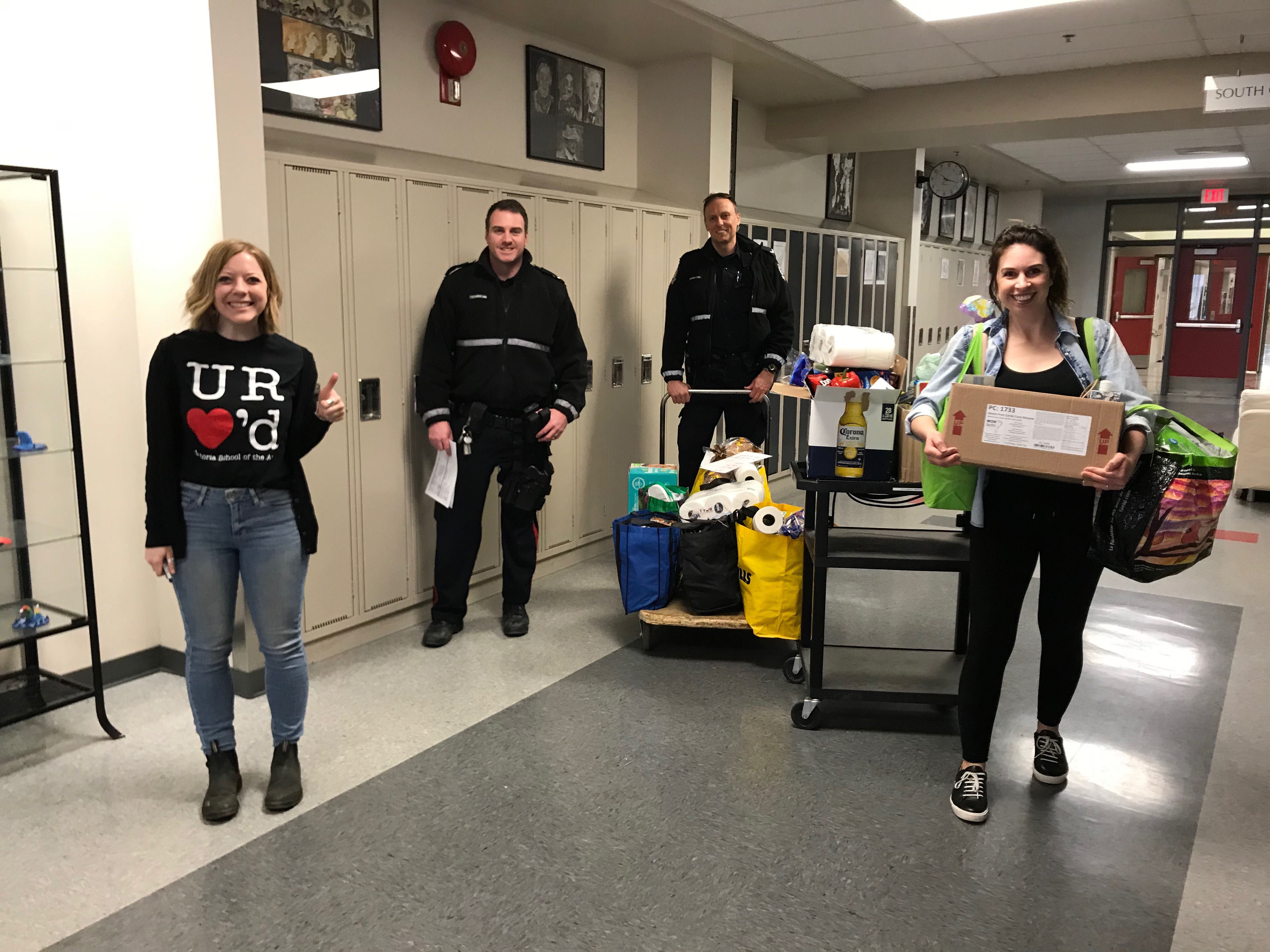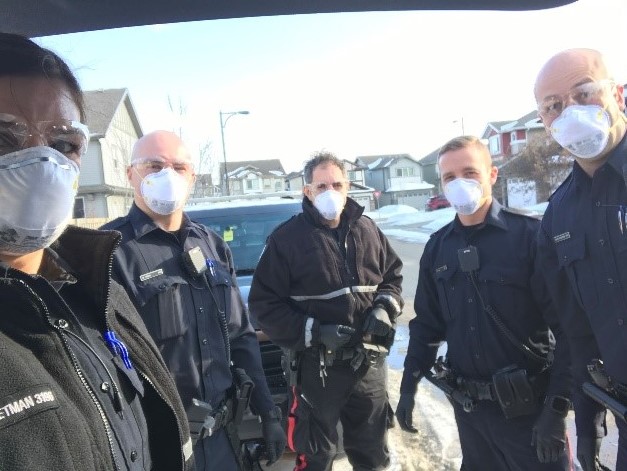The
closure of educational facilities impacts not only students and their families
but have posed new problems for resource officers and educational staff.
“Our
youth come from different backgrounds and as a result have different resources and
supports outside of school,” said EPS SRO Sergeant Emuel Chan. “Now that their
learning environment has been removed from the classroom, those differences
come into view.”
Most
notably, with children now isolated at home, there has been an increase in
reports of domestic violence involving or being witnessed by youth. Meanwhile,
instances of online sexual offenders attempting to lure and sextort children
through various chat and live-streaming platforms are also on the rise,
explained Sgt. Chan.
“Youth who were
already being monitored for child protection–related concerns, sexual
exploitation, drugs and criminal affiliation are now more likely to become
further entrenched or involved during these times of change and uncertainty, or
at-risk of being exposed to it for the first time.”

In response to the school closures, the resource officers created the Youth Enhanced Deployment initiative. This initiative enables all 29 SROs — whose primary function is to assist school administration by ensuring a safe and caring place of learning for students and staff, balancing enforcement with prevention and intervention — to continue to provide their services to vulnerable and at-risk youth, as well as incorporate new levels of service.
The unit hit the ground with their new initiative at the start of April.
From relocating children reported missing, finding and returning stolen items, following up on the mental and physical well-being of youth and their families, speaking with students who may be struggling emotionally or having a hard time with self-isolating, conducting ‘hot spot’ policing in popular areas where troubled youth may hang out, these are just a few ways the resource officers have stayed connected to their schools and community.
“Our SROs have made connections with many of the students, teachers and educational partner services that flow in and out of their schools and surrounding community,” said Sgt. Chan.
“When that educational hub is suddenly removed, so is the opportunity for our officers to check-in with youth and connect them with partner agencies. This new initiative our SROs have worked diligently to implement aims to help change that.”
One of these services that many of the city’s youth rely on is the Alberta School Nutrition Program, which helps students in participating schools get a daily nutritious meal via a breakfast or lunch program.


To ensure those who depend on their schools for food are not left behind, educational staff found an innovative way to continue providing nutritious meals to vulnerable students and families by creating food hamper care packages and educational kits.
“During the school year, there are many families that rely on their children’s schools to provide them with nutritious meals and additional services they may not necessarily have access to outside of the classroom,” said SRO Constable Amanda Hinks, one of several resource officers that are working with the schools to deliver hampers to families who face transportation challenges.
“Providing this service to families in need allows our SROs an on-going opportunity to foster relationships with families, connect with students, navigate additional resources they might require such as mental or physical health checks, and continued emotional support.”
As the weeks youth spend away from their schools lengthen, so does the list of families in need, as well as the growing concern for their children’s health and well-being. Despite the closures, students can contact their SRO directly or via school administrative staff for counselling or as a call for service.

In the meantime, the resource officers continue to field requests for follow-up from school administrations regarding youth who may be at high risk to become victimized or offend, as well as responding to calls from dispatch and assisting with warrant executions when necessary, reassuring families and the community that their services are still available during this unprecedented time.
“With the Youth Enhanced Deployment initiative, our SROs are well-positioned to provide innovative, strategic and coordinated approaches to maintain youth engagement,” explained Sgt. Chan.
“They are reducing calls that would otherwise go to patrol, building and maintaining connections with vulnerable youth and their families, and are utilizing the skill sets of the SRO Unit to continue to meet the needs of youth and its collaborative partners.”